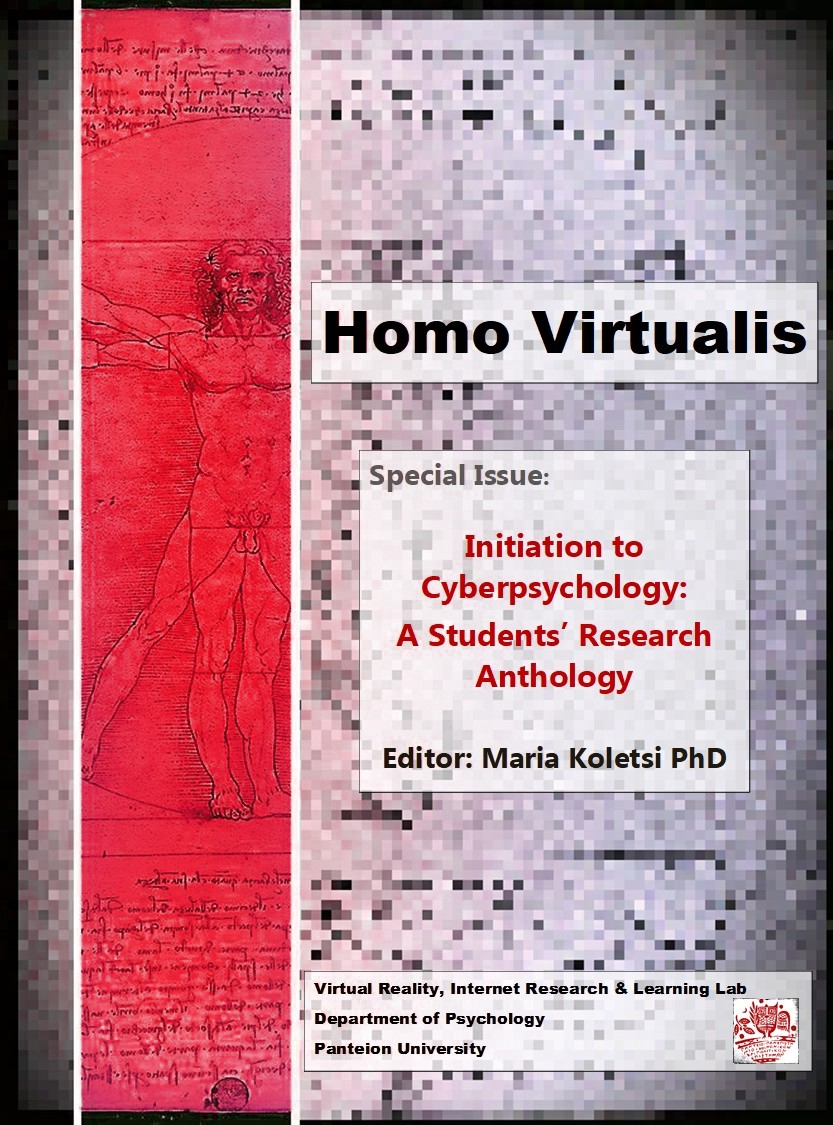Κοινωνική επιρροή στο Twitter : Παραδείγματα και προεκτάσεις

Περίληψη
Η εκτεταμένη κυριαρχία των μέσων κοινωνικής δικτύωσης σήμερα είναι αδιαμφισβήτητη, με το σκοπό χρήσης τους να έχει διαφοροποιηθεί με το πέρασμα του χρόνου και από απλή κοινοποίηση και ενημέρωση για διάφορα θέματα να χρησιμοποιούνται πλέον για την άσκηση επιρροής και πειθούς από ένα ευρύ φάσμα ανθρώπων ανεξαρτήτως ηλικίας, κοινωνικής τάξης και μορφωτικού επιπέδου. Η παρούσα εργασία μέσω βιβλιογραφικής ανασκόπησης στοχεύει στην παρουσίαση παραδειγμάτων κοινωνικής επιρροής σε ζητήματα που αναδείχθηκαν κεντρικά στη σφαίρα της δημόσιας υγείας, της κοινωνίας και της πολιτικής μέσα από το twitter καθώς και στην εξέταση των τρόπων και του βαθμού που η επιρροή αυτή ασκείται κατά την πλοήγηση των χρηστών στη συγκεκριμένη πλατφόρμα. Αφορμή για την εστίαση στις συγκεκριμένες θεματικές υπήρξαν τόσο η εξάπλωση του κινήματος #metoo στην Ελλάδα κατά την περίοδο συγγραφής όσο και η διάδοση των θεωριών συνωμοσίας για τον covid-19. Τα αποτελέσματα της εργασίας δείχνουν πως η κοινωνική επιρροή που ασκείται στο διαδίκτυο και ειδικότερα στο twitter ενδέχεται να λάβει πολύ μεγαλύτερες διαστάσεις σε χωροχρονική κλίμακα από ότι σε πραγματικές συνθήκες, λόγω της πληθώρας και της πολυμορφίας ανθρώπων στους οποίους απευθύνεται. Αυτό το γεγονός συμβάλλει αφενός στη μεγαλύτερη και ταχύτερη ενημέρωση και ευαισθητοποίηση για σημαντικά κοινωνικά ζητήματα, ταυτόχρονα όμως οδηγεί και σε ανεξέλεγκτη διάδοση μη έγκυρων πληροφοριών που εγκυμονούν τον κίνδυνο να αποπροσανατολίσουν και να κατευθύνουν τους χρήστες σε λανθασμένα συμπεράσματα και αντίστοιχες επιλογές στην πραγματική τους ζωή.
Λεπτομέρειες άρθρου
- Πώς να δημιουργήσετε Αναφορές
-
Dagla , M., Bairami , G. P. ., Nikolaou , F. ., & Schoinaraki , E. (2022). Κοινωνική επιρροή στο Twitter : Παραδείγματα και προεκτάσεις. Homo Virtualis, 5(1), 60–83. https://doi.org/10.12681/homvir.30317
- Ενότητα
- Έρευνες προπτυχιακών φοιτητών

Αυτή η εργασία είναι αδειοδοτημένη υπό το CC Αναφορά Δημιουργού 4.0.
Οι συγγραφείς των άρθρων που δημοσιεύονται στο περιοδικό διατηρούν τα δικαιώματα πνευματικής ιδιοκτησίας επί των άρθρων τους, δίνοντας στο περιοδικό το δικαίωμα της πρώτης δημοσίευσης.
Άρθρα που δημοσιεύονται στο περιοδικό διατίθενται με άδεια Creative Commons 4.0 και σύμφωνα με την άδεια μπορούν να χρησιμοποιούνται ελεύθερα, με αναφορά στο/στη συγγραφέα και στην πρώτη δημοσίευση για μη κερδοσκοπικούς σκοπούς.
Οι συγγραφείς μπορούν να καταθέσουν το άρθρο σε ιδρυματικό ή άλλο αποθετήριο ή/και να το δημοσιεύσουν σε άλλη έκδοση, με υποχρεωτική την αναφορά πρώτης δημοσίευσης στο περιοδικό
Οι συγγραφείς ενθαρρύνονται να καταθέσουν σε αποθετήριο ή να δημοσιεύσουν την εργασία τους στο διαδίκτυο πριν ή κατά τη διαδικασία υποβολής και αξιολόγησής της.


